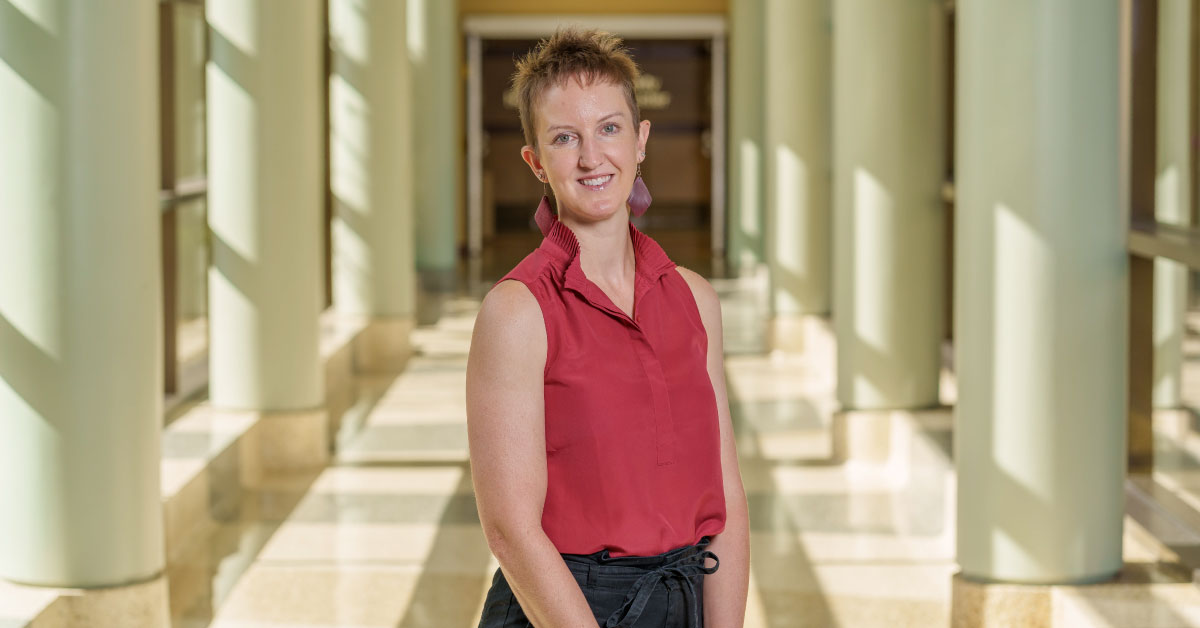Youth Suicide: We Need to Address It

Natalie Scanlon, Ph.D.
Suicide is the second leading cause of death in the United States for children ages 10-14 and the third leading cause of death for teens ages 15-19. Natalie Scanlon, Ph.D., a clinical psychologist in the Department of Psychiatry at Texas Tech Physicians, provided tips for keeping children safe.
Scanlon said there are many potential warnings of suicidality and parents should keep an eye out for the following signs.
“If children begin talking about it, or some may draw about it or write notes, or other things, those are some of the more overt signs we should be concerned and start to ask questions,” Scanlon said. “If you notice any change in a child’s normal baseline functioning. If they go from being more of an extroverted social kid to more isolated and introverted, that can be a warning sign. If you notice changes in academic performance, eating or sleeping, reckless or risky behavior, that can be a warning sign.”
Other factors and warning signs that could signal a child might be contemplating suicide might not be so obvious to parents or caregivers.
“If there are big changes, losses, breakups that happen, we know that those are risk factors for children,” Scanlon said. “Some children, if they’re thinking about suicide, may also start to give away belongings. The two big ones that we know about are if kiddos start to talk about feeling hopeless about their future or a sense of being a burden to other people. Those are red flags that go up in our minds as professionals that somebody might be contemplating suicide.”
Scanlon advised that the best thing a parent can do if they notice these warning signs is to ask and initiate a conversation. She stressed that there is no harm in initiating a conversation about suicide.
“We actually know from a lot of data that you won’t do any harm by asking someone about suicide. You will open the door to honest conversation about suicide or just about your child struggling in general,” Scanlon said. As far as prevention goes, ask, initiate a conversation.”
Scanlon provided the following tips to parents and caregivers who know their child is struggling and might be contemplating suicide.
“If there is some suicidality happening, devise some safety plans and make sure to restrict access to lethal harmful means in the home,” Scanlon said. “A lot of people think about firearms for that, but also be thinking about medications, prescription or over-the-counter, alcohol, substances and sharp objects in the home. All of this can really build in time and space between thinking about suicide and actually completing suicide.”
Scanlon added that when suicide is discussed, focus on three items, plans, desire to die and access to lethal or harmful means.
National, state and local resources exist for youth struggling with suicidality or mental health. A mental health crisis helpline available 24/7 is 9-8-8. If a situation is dire and you fear for someone’s safety, then 9-1-1 is always an option. Bringing someone into your local emergency department is another option if the situation becomes immediately dangerous.
“Here in West Texas, we have a really helpful telehealth program called Campus Alliance for Telehealth Resources (CATR),” Scanlon said. “This is a program where the state of Texas has partnered with independent school districts to triage mental health concerns by caregivers by students by school personnel, such that students can get connected to a virtual psychiatrist, psychologist or counselor through the schools.”
Scanlon added that in some cases, higher levels of care can include a partial hospitalization program or an intensive outpatient therapy. A Texas Tech Physicians partnership with Covenant Children’s will provide a continuum of outpatient services from education and prevention services to group interventions for children and parents to individualized therapy and medication management. If people need more of an inpatient or residential experience, those resources are available throughout the country.
Suicide needs to be addressed. If a child is in need, parents should look for services
that
will help that child and the family system supporting that child. Addressing the first
signs as early as possible and providing the highest standard of care are key.
Related Stories
The John Wayne Cancer Foundation Surgical Oncology Fellowship Program at Texas Tech University Health Sciences Center Announced
TTUHSC is collaborating with the John Wayne Cancer Foundation and has established the Big Cure Endowment, which supports the university’s efforts to reduce cancer incidence and increase survivability of people in rural and underserved areas.
Making Mental Health a Priority in the New Year
Sarah Mallard Wakefield, M.D., a psychiatrist with Texas Tech Physicians, talks about strategies to combat widespread and growing anxiety.
TTUHSC Dean to be Inducted into the National Academies of Practice as Distinguished Fellow
Gerard E. Carrino, Ph.D., MPH, dean of the TTUHSC Julia Jones Matthews School of Population and Public Health, will be inducted into the National Academies of Practice (NAP) as a Distinguished Fellow of the Public Health Academy.
Recent Stories
National Academy of Inventors Names TTUHSC Faculty Senior Members
The National Academy of Inventors (NAI) has designated two current and one former TTUHSC faculty researchers as Senior Members.
The John Wayne Cancer Foundation Surgical Oncology Fellowship Program at Texas Tech University Health Sciences Center Announced
TTUHSC is collaborating with the John Wayne Cancer Foundation and has established the Big Cure Endowment, which supports the university’s efforts to reduce cancer incidence and increase survivability of people in rural and underserved areas.
TTUHSC Receives $1 Million Gift from Amarillo National Bank to Expand and Enhance Pediatric Care in the Panhandle
TTUHSC School of Medicine leaders accepted a $1 million philanthropic gift from Amarillo National Bank on Tuesday (Feb. 10), marking a transformational investment in pediatric care for the Texas Panhandle.
